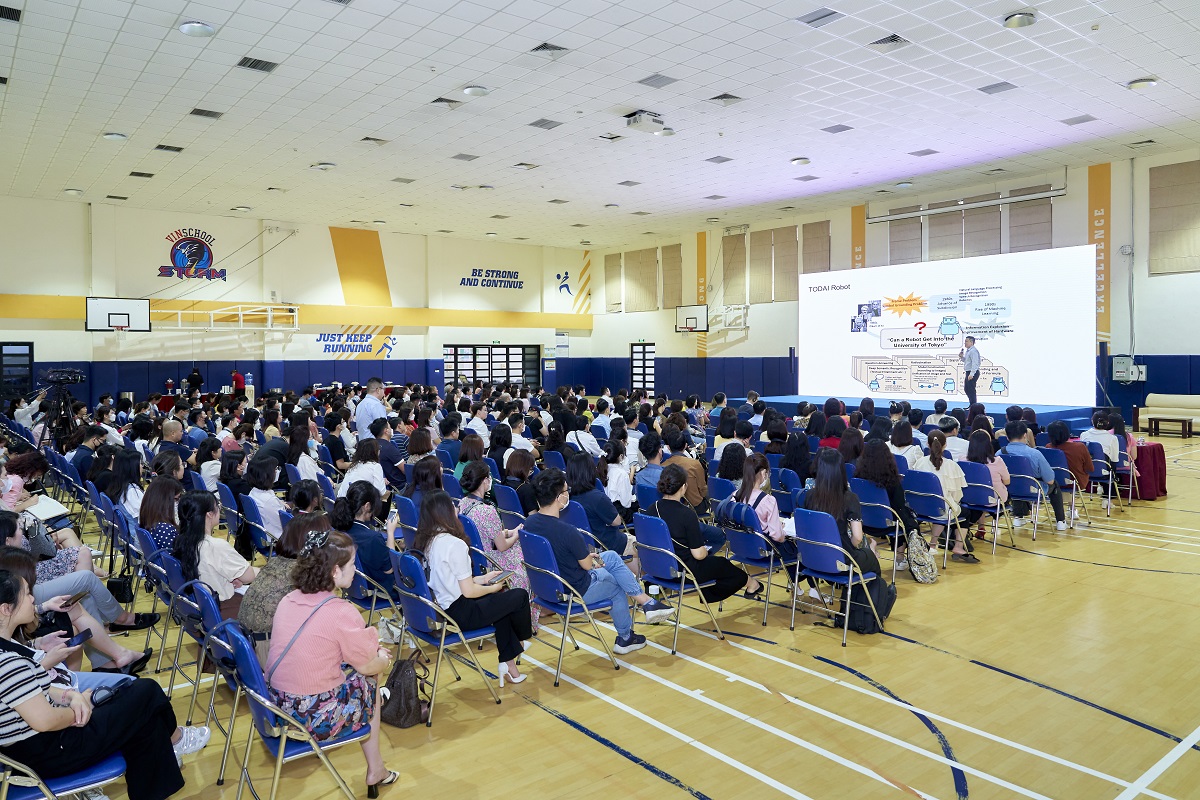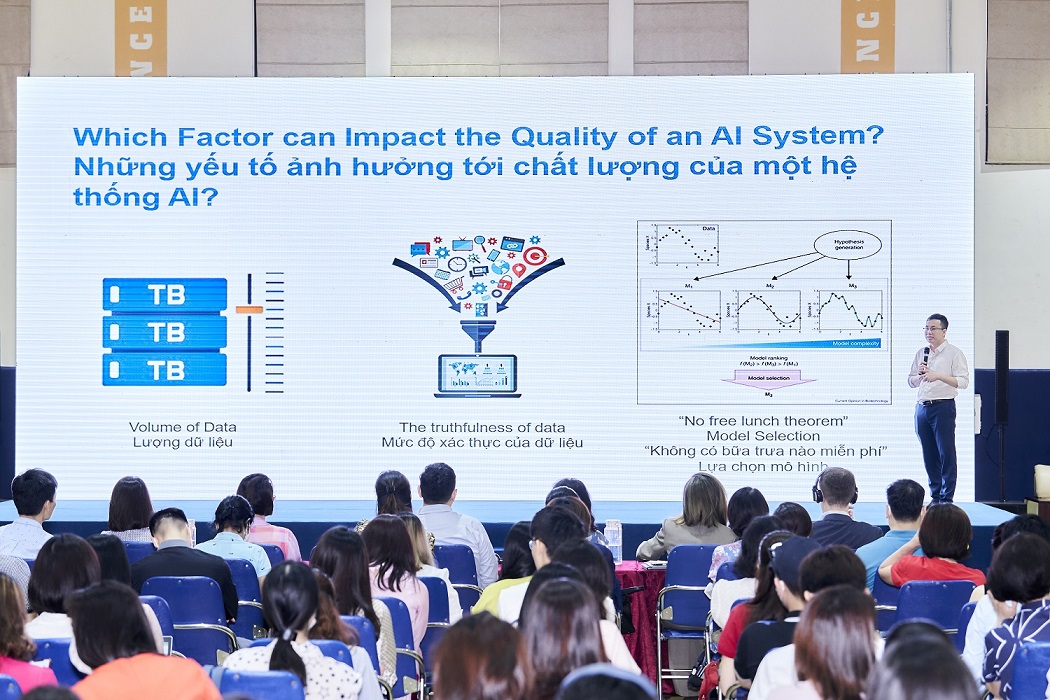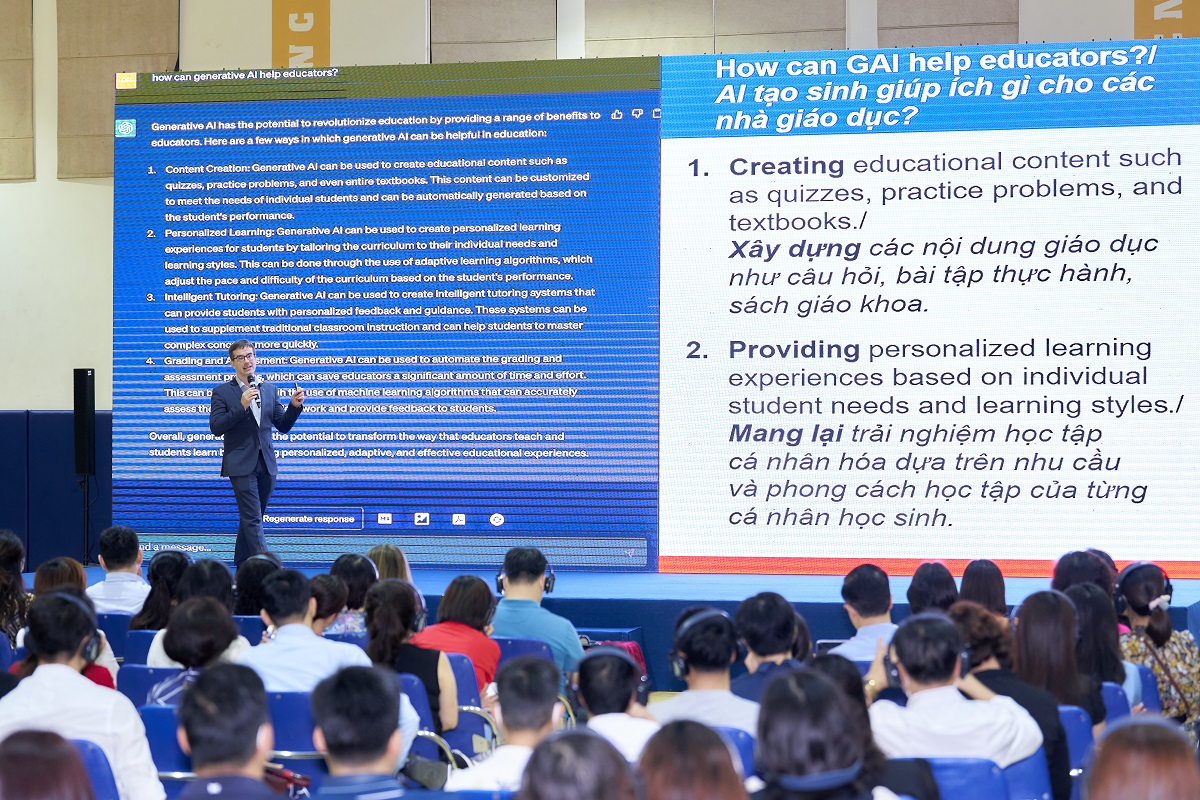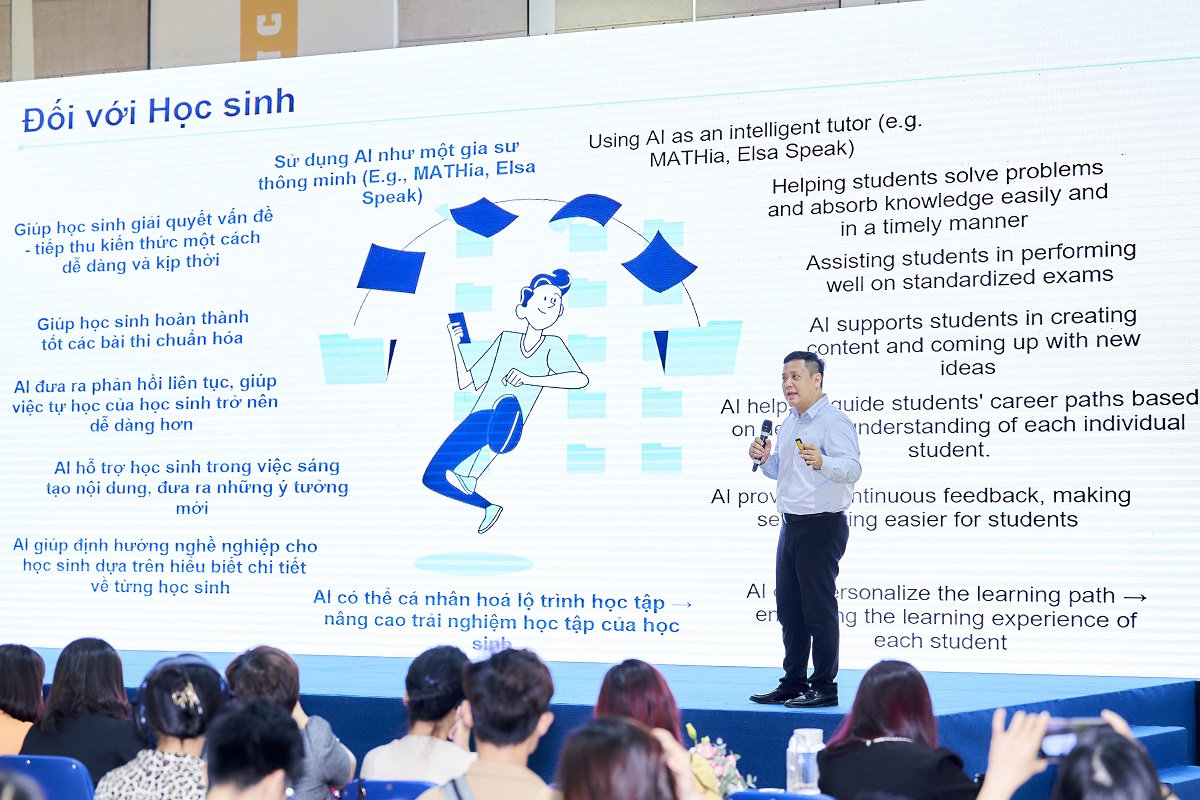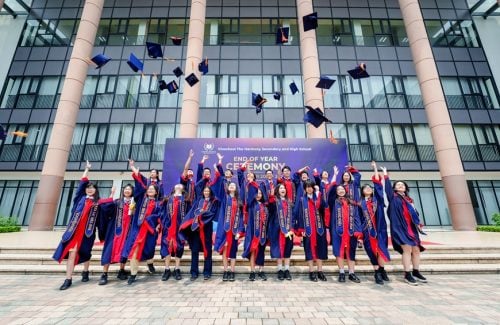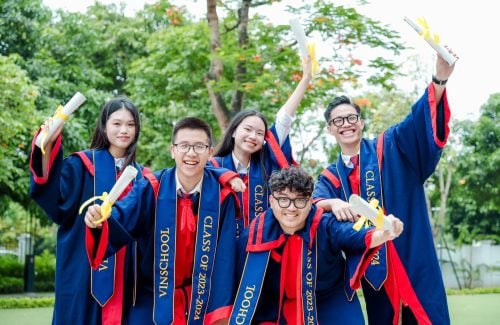Is Artificial Intelligence Redefining Education?
How will the quick advancements in artificial intelligence (AI), machine learning (ML), and most recently the launch of ChatGPT impact the education sector and benefit educators and learners alike? And, in light of the strong influence of AI, how should educators prepare?
These were the main topics covered by speakers at the Vinschool Education System’s conference titled “Is Artificial Intelligence Redefining Education?” on April 22. Nearly a thousand teachers, educational administrators, parents, and people interested in education in general attended the workshop, which featured presenters who are top experts on artificial intelligence and educational leaders. Attendance was both in-person and online.
Thousands of interested people attended the seminar in both face-to-face and online forms.
To give an overview of artificial intelligence and the guiding principles of AI and systems to educators, researchers, educational administrators, and other people interested in new trends in education, Dr. Đặng Trần Thái, Head of Natural Language Processing at VinBigData, stated that AI can have an impact on education by giving users quick access to accurate information, facilitating their search for new information, and reducing the amount of time required to process large volumes of data.
Dr. Đặng Trần Thái from VinBigData talks about the factors affecting the quality of an AI system
Mr. Daniel Ruelle, Director of the Center for Academic Excellence at VinUni University, specifically highlighted the advantages of AI for teachers in helping reduce many workloads, including developing teaching content such as questions, practical exercises, lecture outlines; providing personalised learning experiences based on the needs and learning styles of each student; setting up an intelligent tutoring system, providing personalised feedback and guidance.
Mr. Daniel Ruelle – Director of the Center for Academic Excellence, VinUni University presented at the workshop
Dr. Lê Anh Vinh, Director of the Vietnam Institute of Educational Sciences, noted that AI is not only beneficial for teachers’ work but also has many advantages for students, including personalising the learning path and enhancing the student’s experience; assisting students in problem-solving and knowledge absorption; assisting students in completing assessments; supporting students in creating content; and providing new ideas and career orientation to students based on their interests.
Dr. Lê Anh Vinh from the Vietnam Academy of Educational Sciences presented at the workshop
Will AI replace the role of the teacher?
However, despite these benefits, experts at the Conference concluded that teachers cannot be replaced by AI; rather, this technology complements and supports teachers, fostering growth and new advancements in education.
In order to fill the roles in education and training that AI cannot fill, teachers must be able to self-study, be regularly updated, grow themselves, and improve their teaching methods in comparison to the traditional ones.
Teachers need to play an active and creative role; train students in soft skills, such as those related to emotional competence, which are roles and responsibilities that AI can never take over, instead of simply transmitting knowledge and content, which AI can replace and do better.
Participants in the programme and educational administrators should rethink how learning materials are distributed, reducing the amount of knowledge and content that is taught while increasing 21st century skills like critical thinking, creativity, teamwork, flexibility, and technological proficiency.
How to prepare students for the age of artificial intelligence?
The primary themes brought up at the workshop by Ms. Phan Hà Thủy, General Director of the Vinschool Education System, were updating instructional materials to train students to become true digital citizens leveraging the advantages of AI and recognising hazards and ethical concerns.
Ms. Thủy underlined that at that point, we will assist kids in obtaining Intelligence Augmentation (IA).
The Vinschool Education System features a Human-AI Collaboration curriculum framework, which involves the introduction of a new education strategy for the future, in order to prepare teachers and students to be able to use the benefits that artificial intelligence offers in learning and teaching. To prepare students for success in a world where humans and robots work together to achieve great things, Enhanced Intelligence, Education by Outcome stresses skills and competences that contribute to Enhanced Intelligence.
In particular, Ms. Thủy underlined that in the age of AI, critical thinking abilities for pupils are more crucial than ever. Students must practice critical thinking to be able to assess and choose feedback from AI tools, create the habit of confirming the veracity and correctness of the information, and take into account this tool’s limits.

